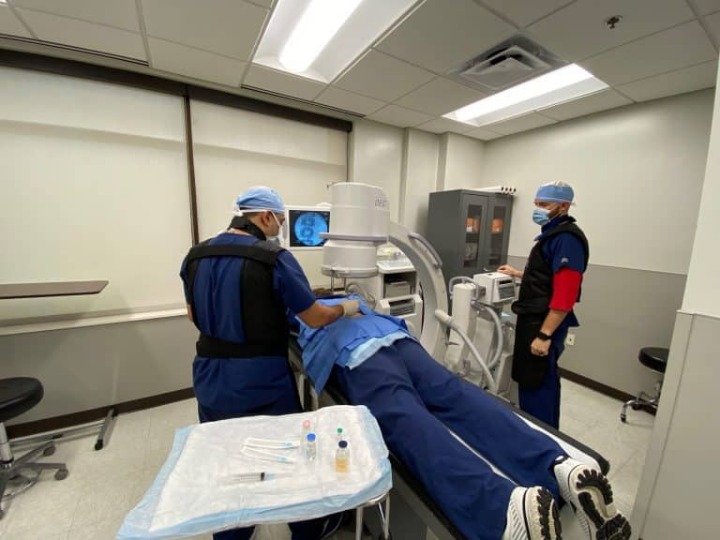Read more about interventional pain management procedures here.
Pain is a universal human experience that can significantly impact an individual’s quality of life. For many people, chronic pain can be debilitating, affecting their ability to work, perform daily activities, and enjoy life to the fullest. While traditional pain management methods such as medication and physical therapy can provide relief, there is a growing recognition of the benefits of interventional pain management.
The Basics of Interventional Pain Management
Interventional pain management is a multidisciplinary approach to treating pain that involves minimally invasive procedures to target the source of the pain directly. These procedures are guided by imaging techniques such as X-rays or ultrasound to ensure accurate placement of medication or treatment. Unlike traditional pain management methods that focus on masking pain symptoms, interventional pain management aims to identify and treat the root cause of the pain.
Types of Interventional Pain Management Procedures
There are a variety of interventional pain management procedures available to address different types of pain conditions. Some common procedures include:
- Epidural Steroid Injections: These injections deliver anti-inflammatory medication directly to the area around the spinal cord to reduce inflammation and alleviate pain.
- Facet Joint Injections: These injections target the small joints in the spine to reduce inflammation and relieve pain caused by arthritis or injury.
- Radiofrequency Ablation: This procedure uses radiofrequency energy to disrupt the nerves that send pain signals to the brain, providing long-lasting pain relief.
Interventional pain management procedures are typically performed by interventional pain specialists who have specialized training in pain medicine and advanced procedural skills. These specialists work closely with patients to develop personalized treatment plans based on their specific pain condition and individual needs.
The Benefits of Interventional Pain Management
Interventional pain management offers several benefits for patients suffering from chronic pain:
- Targeted Treatment: By directly targeting the source of the pain, interventional procedures can provide more effective and long-lasting relief compared to traditional pain management methods.
- Reduced Need for Medication: Many interventional procedures can reduce or eliminate the need for pain medications, which can have side effects and potential risks.
- Improved Quality of Life: By relieving pain and improving function, interventional pain management can help patients regain their independence and return to the activities they enjoy.
Overall, interventional pain management offers a holistic approach to pain treatment that addresses both the physical and emotional aspects of pain. By working with a skilled interventional pain specialist, patients can find relief from chronic pain and improve their overall quality of life.
